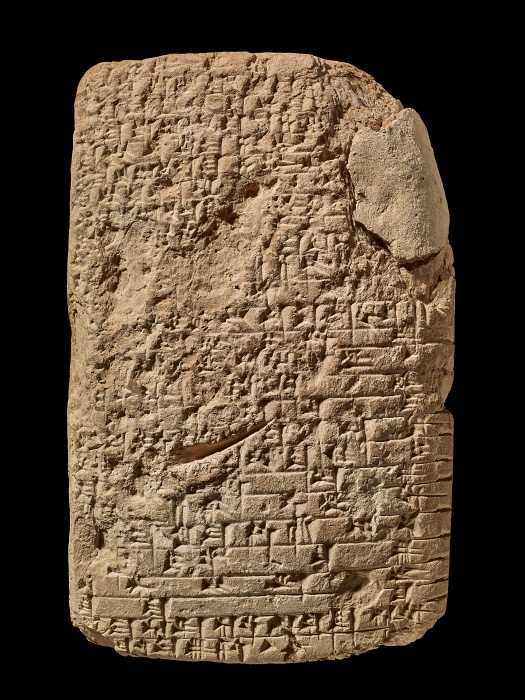SOAS History Blog Podcast Ep 7: Alden Young
More about this episode

Dr Alden Young
Interviewee and author of Transforming Sudan: Decolonization, Economic Development, and State Formation (2017).
Interviewed 2022.

Al Jawhara H. Al-Thani, John Michael Gurklis, and Nour Alsabagh
Interview Team

Histories of Capitalism and Race Seminar Series SOAS 2022

SOAS History Blog
Ellan A. Lincoln-Hyde: Editing and production
Cristyn Hughes: Transcription
Samples of music in this podcast have been for research and academic discussion, or are free use tracks.
Podcast Transcript
Introduction (Ellan): This is a SOAS History Blog podcast. To read and hear more content from the SOAS History Blog, go to blogs.soas.ac.uk/soashistoryblog.
Music: Atlas Shoulders by Koi Discovery
John-Michael: Hi, I’m John-Michael. I’m an MA student here at SOAS doing history.
Jawhara: Hi, I’m Jawhara, with Dr. Alden Young, who is an associate professor at UCLA, and he’s here to talk today about his recent book Transforming Sudan: Decolonisation, Economic Development and State Formation.
John-Michael: But before the seminar, we’ve managed to pull him aside to have a brief conversation about his work – a bit more broadly – and the general process behind making it. So, I guess you can introduce yourself, and then the question will be: how do you describe your motivations for the project?
Young: Hi, I’m Alden Young. I’m an associate professor at UCLA. I think my main motivation behind the project Transforming Sudan I was really thinking about, you know, these questions that were raging in the early 2000s about what it meant to make an economy, and I wanted to do it in a place like Sudan, where I noticed that there hadn’t been a lot of writing about the modern Sudanese economy. The most persistent explanations took Sudan in as a whole over the last two hundred years and sort of saw the origins of the Sudanese Conflict as primarily, you know, either ethnic, religious or racial. I was wondering what it would mean if we took seriously this new literature about the making of a Sudanese economy.
Jawhara: So, how do you see your work fitting into the broader conversations that are happening within the various disciplines, which are engaging history, economics, developmental studies, African and Middle Eastern studies?
Young: I think Sudan is often left out, especially when I was starting to work. I went into grad school in 2005, and so, I know, it’s sort of pre-financial crisis. But at that time Sudan was being left out of a lot of history discussions. It was seen as neither fully African nor Middle Eastern and a lot of the work at that moment was about the Civil War in Darfur and crisis management, crisis humanities. And, so, either Sudanese history was kind of an elonged array from the 19th century or it was very prescient. One of the interventions I was trying to make was this idea that, you know, the decolonization moment was actually a really important moment in Sudan, and it wasn’t simply a continuity with the colonial period, that important changes actually happened during this period, and we could do [this intervention] with archives. There was also a sort of pessimism at the time about African archives – which I think is getting much better now – that we would find anything useful in African archives. I was very lucky that I arrived in Sudan around 2008, before the International Criminal Court indicted the former president of Sudan, or long-time military dictator Omar al-Bashir. In that moment, the Sudanese were working to revamp their National Archives, under the idea that if people could only see the archival record, they would realize that they weren’t solely responsible for the wars in Darfur and South Sudan – which is perhaps a naive idea about how international politics works in archives. But what was very beneficial to me, in the sense that, well, no one was trying to use the finance ministry archives, so when I told them I wanted to use finance department archives they were like “oh, well, no one has ever really asked for these before and we’re not very interested in them. So, you can use them, maybe until the seventies.” And it created this space, where I was trying to say, “what would it look like if we…looked at supposed normal functions of government and saw its change?”
John-Michael: So, you talked about getting, you know, access to this new archive in terms of your general research. But I just wanted to ask, how did your project change over the course of the research?
Young: I think originally, I had this sort of naïve idea that I would write this intellectual history of Sudan, and I thought I was going to find tons of 1950s economists, but I didn’t really have a good idea of what it meant to be an economist nor what it meant to do economic policy. And I think the thing that surprised me was actually the two archives which I was allowed into. One was here in Durham, in England. A British official had just passed away within the last few years and his wife had finally donated the archives to Durham. His name was John-Michael-Michael Carmichael. When I got there, they were like “oh, this is perfect that you’ve arrived, the Carmichael papers are right here and waiting for someone to use them”. And I think it was in that archive that I really began to understand that what I thought I was looking for wasn’t what I was looking for. I thought you were going to find people with their PhD from Cambridge who were studying economics and would write, like, large books on economics. But what I found was that someone like Carmichael – and this was on the British side – was a meteorologist. And he had started as a meteorologist in the thirties, and when they decided they needed more people in finance, they were like “oh, you’re numerate, so you can come and be a finance person”. And as they created a discipline of an economics ministry and they were all “what is economic development?”, He stayed on as the last British official in Sudan. He was the first permanent under-secretary for the Ministry of Finance and Economics, but he didn’t have any economics background. And then later, he would go to the UN and he would sell bug repellent. And so, his big thing is that he became a person who sold bug repellent throughout the colonial world. But, similar to many other officials – well, these officials were just starting their career when they got promoted in the early fifties into the Ministry of Finance – which Sudanese officials had not been allowed into prior to the ‘54 referendum on self-determination. They had either come from the Native Authority Ministry, where they were supposed to, you know, do local management, or some of them were going to work in the military. But they were pulled in. And it was interesting to see the way in which…what they came to understand as economic development they really learned through economic diplomacy. And I didn’t have any idea that economic diplomacy was so important, that you were more like a diplomat than an economist. And so, that’s what really changed my project I think, I have to take a step back. I was looking for a certain type of intellectual. I guess I was looking for the Sudanese Paul Krugman or [UNCLEAR] and that wasn’t there yet. I mean, that maybe would come later, but those weren’t the people who were making important decisions in the fifties and early sixties.
Jawhara: I do also have another question that’s pertinent to my own research, actually. When you’re discussing the development of economists within the text, I did have a question about the influence of Sudanese bureaucracy or models of bureaucracy and models of governance and policy-making on other parts of the Arabic-speaking world. In particular, I’m looking at the Gulf, and you do see an export of a lot of “experts” coming from Sudan and from Egypt as well. What do you think of the potential role of expansion regarding the ideas of transformation and the impact it has on transformation within the wider Middle East and the wider African context?
Young: That’s a great question. I mean, in some ways, this is what I’m beginning to work on now in my new project, which I think I’m calling ‘The Long Revolt’ but that might change. But it takes up from about 1969 until about 2003, and it looks a lot at Sudanese, I guess we might call them professionals or intellectuals as they migrate from Sudan into the greater Middle East, but particularly into the Gulf. The Sudanese, I think, had a big impact on the Gulf, and you see it early. You see Kuwait coming in first in the mid-1960s – the Kuwaiti Development Fund. And they’re major investors and disciplined and they’re experienced in dealing in Sudan and forced to join the World Bank group, and they become disciplines as, sort of, creditors. But many of the officials Abdul Rahim al-Rahmani, for instance, who writes the Sudanese Plan in 1960 – what will he do? He’ll leave by the end of the sixties. He’s gone to Kuwait, and he joins the Arab Development Fund – and he’s only one of many. This was something that was very common, and you start seeing this mass exodus by the end of the sixties of Sudanese professionals, and in particular, people from the Planning Ministry and things like that, going first to Kuwait and then to the other Arab countries – I mean, Gulf countries. I think that is really different from their relationship to, say, Egypt. In Egypt, from the very beginning, from the thirties onwards, you see Egyptian experts coming into Sudan to do things – I mean, Egyptian experts have been coming into Sudan maybe since the nineteenth century so I guess it’s not just then. But in economics, you saw them coming in in the thirties to do some of the early plans. And Sudan really takes off in the late seventies, as Egypt signs Camp David and a number of Egyptians are sent home, then Sudanese experts are allowed to come in and take up a lot of positions that had previously been held by Egyptians. One of the characters I’m writing about now, [UNCLEAR] he comes to Abu Dhabi in 1979, and his job is to replace some of the Egyptians that had been working in the analytical wing of the Foreign Ministry. And so, this kind of replacement, I think, it’s really big and it goes on till today. I think I arrived in 2013 to the university of Khartoum, and since 2011, at least a third of the faculty had left recently to go to Saudi to take up posts. And so, this continues into the present, especially with the expansion of the educational facilities in places like the Gulf countries and Saudi. They employed so many Sudanese.
John-Michael: Thank you for that answer, that was really good.
Jawhara Really good.
John-Michael: You want to dig into, you know, sort of who/what influenced you and your historic perspective and how you see that in your work?
Young: I came to Princeton in 2005, fresh from a year at LSE – a rival institution – and there I was studying international history, but it was very unclear exactly what I was doing. And I think I thought I was going to work on the Middle East, but they had decided… It was a moment in which Princeton had no modern Middle Eastern Professors. I think in the wake of the Iraq War it became a little political and so, they couldn’t decide. And I was lucky that my advisor, who was retiring at the time, Robert Tignor, said he would stay on if I wanted to be his last student, but that even though he wrote mostly about Egypt, he saw himself primarily as an Africanist. So he said “you know, if I become your supervisor, you’ll have to be an Africanist.” He gave me a list of four countries I could work on: Egypt, Sudan, Nigeria or Kenya. He said “choose one”, and I said “I wanted to do this kind of…economic history, I think, or history of the economy” and I was like, “Rob Tignor’s written like 10 books on the Egyptian economy, so that doesn’t sound like it’s going to go over very well.” And I was like, “I don’t know anything about Nigeria and everyone I can see works on Kenya in African history and so I’ll try my hand at Sudan.” But I had never been to Sudan and I didn’t know much about Sudan until I arrived in 2008. The other big influence was Timothy Mitchell. I had read ‘Rule of Experts’ as an undergrad and I was perplexed by this idea that there couldn’t be a national economy until the end of empire. I think a lot of my projects take off on that question. What did it mean? What was the relationship between creating nation states and national economies? And in a place like Sudan, is there really a national economy? This is, I think, still one of the questions that’s out there. I remember meeting one of the famous businessmen in Sudan a few years ago, Zuhair Syed, and he was explaining to me what he saw as the domestic economy of Sudan. He says, the domestic economy is Khartoum, of course, as the main centre, but then what we see now as Sudan, Eritrea, Chad, the Central African Republic and South Sudan. But then he explained to me that Ethiopia and Egypt are two foreign economies. And so, I think that’s still an interesting question. Like, what exactly is the balance of the national economy, or the domestic economy, for Sudan, in relation to the nation state.
Jawhara: Just a sort of ending question, really, do you have any notable memories from your research? Anything surprising that happened to you during your time in Sudan or at Durham, when you were conducting this archival work?
Young: First I will say that the food at the World Bank cafeteria was exceptionally good, and that was one of my great joys. I would go there quite often, and I would just eat in the cafeteria. I was always like, “man, these people are living large.” It was also very international, so you would meet people from everywhere in the World Bank cafeteria. But in Khartoum I think one of the things that surprised me the most was how you can go to the archive, and you would have like a late breakfast, and then afterwards, I mean, I think I spent most of my time drinking tea and sitting with people. You can just chat all night in Khartoum, and I think that was what was incredibly pleasant about doing the research there. It was an interesting moment because the ICC judgment was coming down, but I was there in a moment in which it was quite relaxed. I think it was very hopeful in 2008, both about whether or not partition would happen or secession. I mean, I think there was some idea that maybe it wasn’t going to happen? I think it’s just hard sometimes to remember that…there are these moments where you can do research in a country in which, you know, things are very relaxed. And then a few years later, things can be in a totally different environment. So, I think that’s a lot of what we, we’re kind of fortunate if we come in at certain times. We have certain opportunities that won’t always be there.
Jawhara: Thank you so much for joining us today. We really appreciate you taking the time to talk to us.
Young: Thank you again, it was a pleasure to be interviewed.
Outro (Ellan): You’ve been listening to a SOAS History Blog podcast. This episode was edited and produced by Ellan Lincoln-Hyde. For more content from the SOAS History Blog, find us at blogs.soas.ac.uk/soashistoryblog and follow us on Twitter (@soashistory) and on Instagram (@soashistoryblog).
SOAS History Blog, Department of History, Religions and Philosophy, SOAS University of London
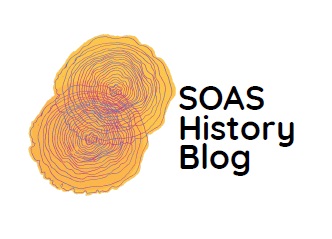

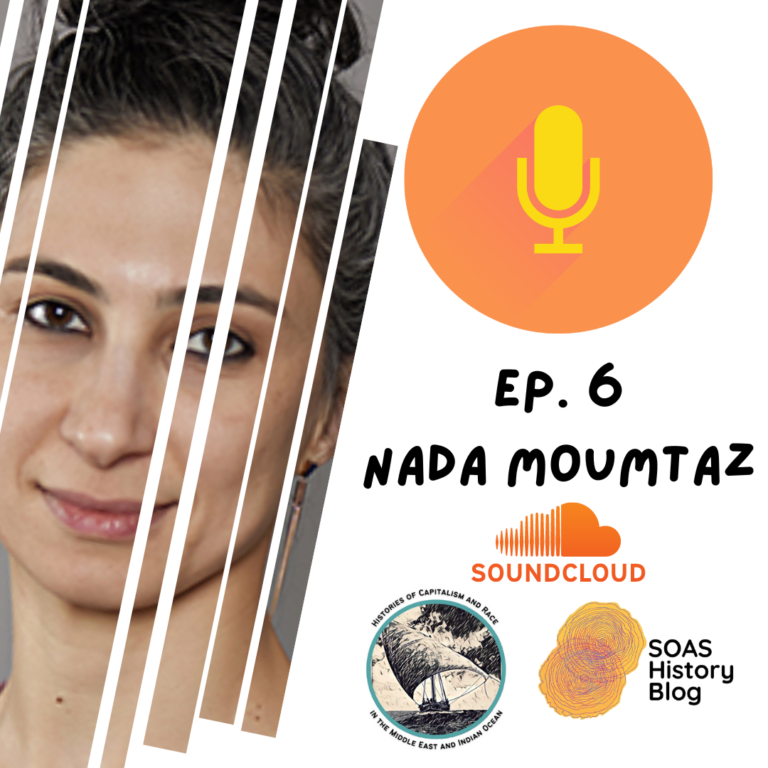
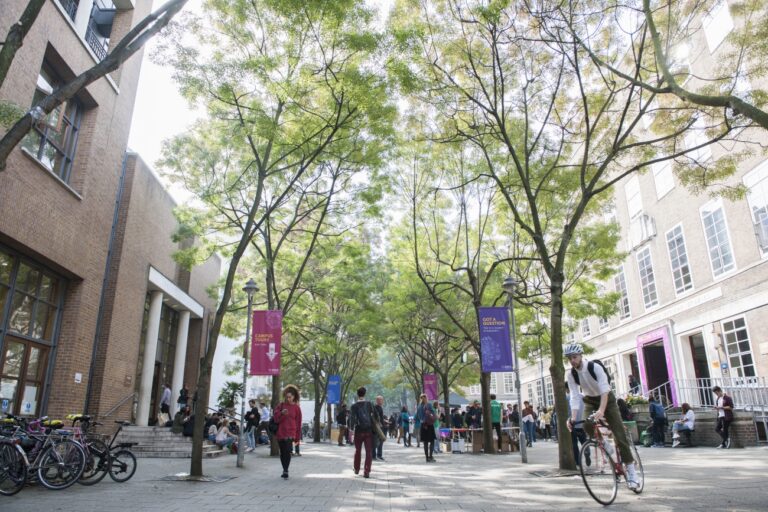
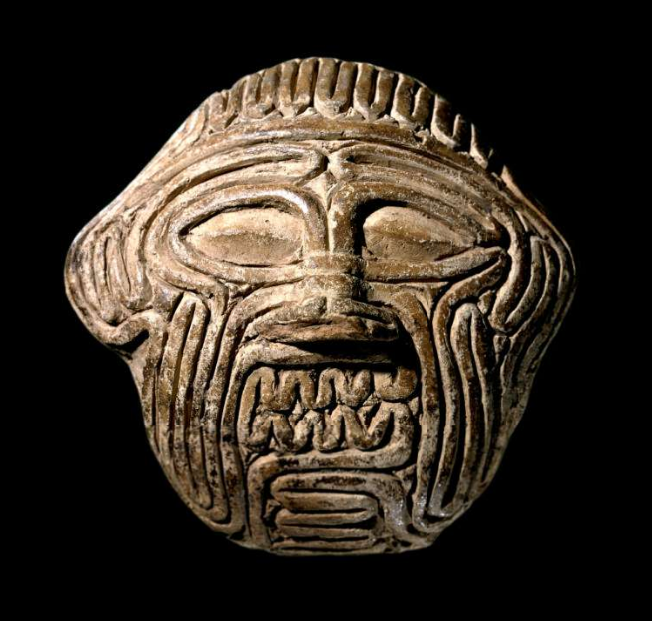

![SOAS History Blog Podcast 11: Poetic Knowledges and West African Histories [Live Recording Event]](https://blogs.soas.ac.uk/soashistoryblog/files/2023/08/Images-of-Africa.-Painting-Tadjo-768x549.jpg)
